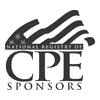
2024 Intermediate Accounting and Reporting
- Registration Closed

January 24-26, 2024
This program is a fantastic introduction for new professionals moving into higher education accounting as well as those who want to learn about accounting and reporting topics that are beyond their current responsibilities. This workshop for private and public institutions covers restrictions, endowments, investment pool unitization, contributions, split interest gifts, capital assets, debt, functional expenses, and operating activities.
Attendees receive a thorough explanation of Financial Accounting Standards Board (FASB) and Governmental Accounting Standards Board (GASB) standards relevant to higher education institutions. There is emphasis placed on financial reporting rules, sample statements and campus examples. Preparation principles for direct method cash flow reporting and the myriad of reports that central administration must produce for federal agencies and analysts are also covered.
Learning Objectives
After this program, you will be able to—
- Explain GAAP and what college and university financial statements convey
- Describe the rules behind endowment accounting and reporting
- Differentiate how various operating activities get reported
- Clarify various types of restrictions
Speakers
- Terri Albertson, vice president for finance and administration, Ursinus College
- Shea Bryant, manager of financial reporting, Michigan State University
- Teresa Edwards, system office of budgets and accounting, Texas A&M University System
- Tom Ewing, director of financial reporting, The Ohio State University
- Kelli Perry, assistant vice president for finance and controller, Rensselaer Polytechnic Institute
- Nicole Tirella, vice president for financial operations and university comptroller, Boston University
- Karl Strauss, director of accounting, Oregon Health and Science University
- Mary Wheeler, FARM author and consultant, NACUBO
- Chris Leach, accounting policy analyst, NACUBO
- Sue Menditto, senior director, accounting policy, NACUBO
Recordings
All sessions will be recorded. Registrants will receive an email when the recordings are available.
CPE Available: 12 Credits in Accounting and Accounting Governmental
Each individual must register and attend separately to earn credit.

NACUBO is registered with the National Association of State Boards of Accountancy (NASBA) as a sponsor of continuing professional education on the National Registry of CPE Sponsors. State boards of accountancy have final authority on the acceptance of individual courses for CPE credit. Complaints regarding registered sponsors may be submitted to the National Registry of CPE Sponsors through its website www.nasbaregistry.org
Event Information
- Level: Intermediate
- Prerequisites: Minimum 1-2 years of experience as a professional in higher education or a related private industry.
- Advanced Preparation: None
- Delivery Mode: Group internet based
- Field of Study: Accounting and Accounting Governmental (See schedule for fields of study by session)
- Length: 75 minutes per session
How to Earn CPE Credit
CPE credit is awarded per session. You can only earn credit for attending a session live. CPE credit cannot be earned for watching the recordings.
To earn CPE credit, go to the Schedule tab and click the title of the session you want to attend. On that session page, you will complete the following tasks under the Content tab, after the session has ended:
- Pass the CPE codeword quiz. Write down the codewords posted in the Zoom chat at random times throughout the session and complete the quiz at the end of the session.
- Submit the CPE check-out code displayed at the end of the session.
- Download your CPE certificate.
You have until 5 pm Eastern Time on Monday, January 29, 2024, to complete these three steps for all attended sessions or report technology issues with this site to online@nacubo.org.
For more detailed instructions, review the CPE Instructions page.
-
Recorded On: 01/24/2024
Hear an overview of Financial Accounting Standards Board guidance that colleges and universities must pay attention to. This session covers requirements and financial reporting practice and delves into restrictions, contributions, pledges, net assets, revenue, expenses, gains, losses, and disclosures.
-
Recorded On: 01/24/2024
Hear an overview of Financial Accounting Standards Board guidance that colleges and universities must pay attention to. This session covers requirements and financial reporting practice and delves into restrictions, contributions, pledges, net assets, revenue, expenses, gains, losses, and disclosures.
-
Recorded On: 01/24/2024
Hear an overview of Governmental Accounting Standards Board guidance that colleges and universities must pay attention to. This session covers requirements and financial reporting practice and delves into restrictions, assets, liabilities, inflows and outflows, net position, exchange and non-exchange transactions, and disclosures.
-
Recorded On: 01/24/2024
Hear an overview of Governmental Accounting Standards Board guidance that colleges and universities must pay attention to. This session covers requirements and financial reporting practice and delves into restrictions, assets, liabilities, inflows and outflows, net position, exchange and non-exchange transactions, and disclosures.
-
Recorded On: 01/25/2024
This session addresses the accounting, reporting, budgeting, and operating environment for noteworthy revenues and expenses of colleges and universities. Panelists approach the topics by considering FASB accounting and reporting requirements.
-
Recorded On: 01/25/2024
This session addresses the accounting, reporting, budgeting, and operating environment for noteworthy assets and liabilities of colleges and universities. Panelists approach the topics by considering FASB accounting and reporting requirements.
-
Recorded On: 01/25/2024
This session addresses the accounting, reporting, budgeting, and operating environment for noteworthy revenues and expenses of colleges and universities. Panelists approach the topics by considering GASB accounting and reporting requirements.
-
Recorded On: 01/25/2024
This session addresses the accounting, reporting, budgeting, and operating environment for noteworthy assets, liabilities, and deferred inflows and outflows of resources of public colleges and universities. Panelists approach the topics by considering GASB accounting and reporting requirements.
-
Recorded On: 01/25/2024
Public institutions are required to report their cash flow statement using the direct method; private institutions do not have this requirement but are encouraged to consider using the direct method. This session covers how to approach the cash flow statement using the direct method and the advantages of this presentation.
-
Recorded On: 01/26/2024
Presenters review all accounting and reporting considerations and requirements for true endowments and funds functioning and endowments. Accounting for the various split-interest gifts that comprise planned giving arrangements are also discussed. Several differences between GASB and FASB requirements are highlighted.












